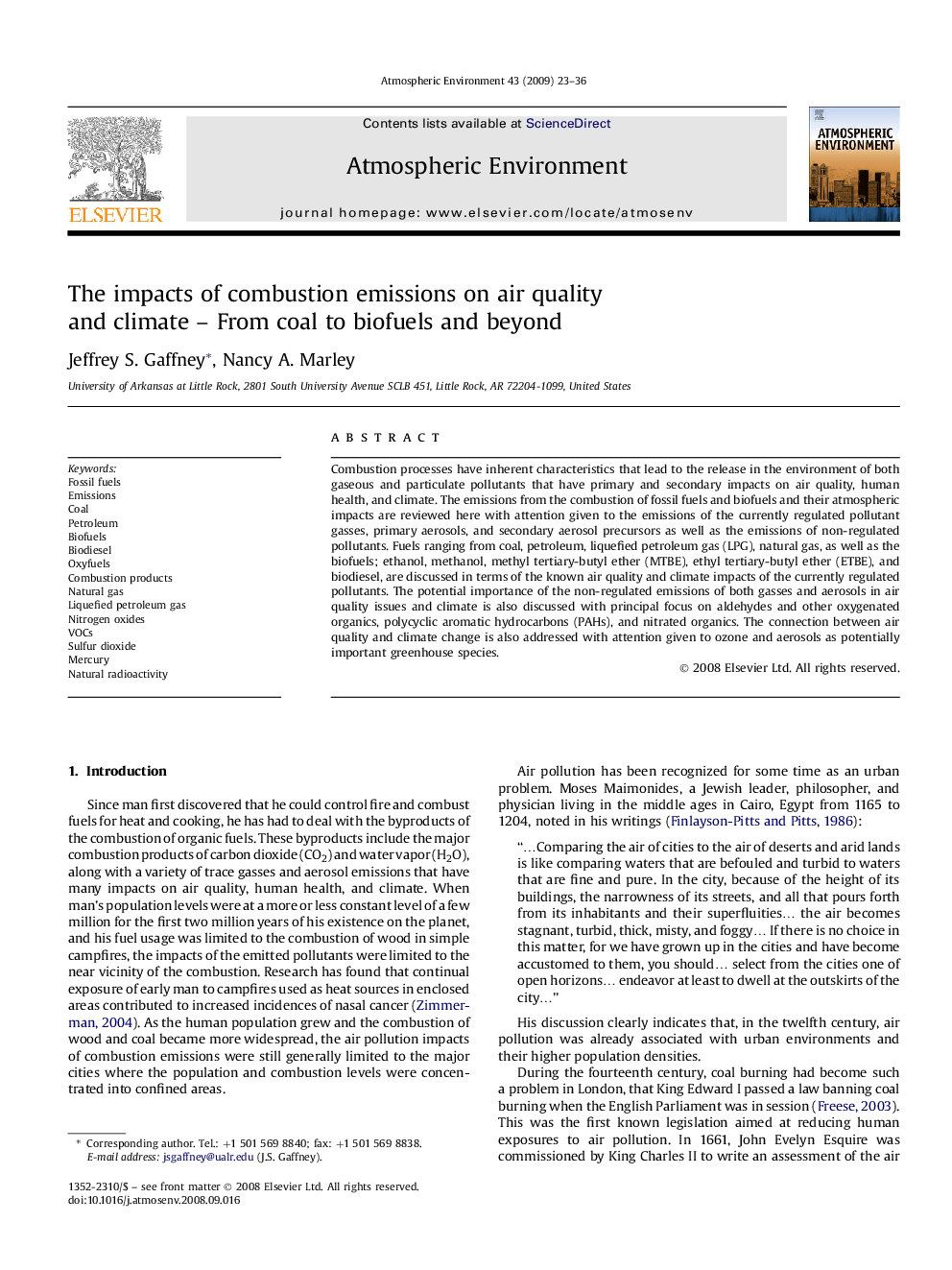| Article ID | Journal | Published Year | Pages | File Type |
|---|---|---|---|---|
| 4441855 | Atmospheric Environment | 2009 | 14 Pages |
Combustion processes have inherent characteristics that lead to the release in the environment of both gaseous and particulate pollutants that have primary and secondary impacts on air quality, human health, and climate. The emissions from the combustion of fossil fuels and biofuels and their atmospheric impacts are reviewed here with attention given to the emissions of the currently regulated pollutant gasses, primary aerosols, and secondary aerosol precursors as well as the emissions of non-regulated pollutants. Fuels ranging from coal, petroleum, liquefied petroleum gas (LPG), natural gas, as well as the biofuels; ethanol, methanol, methyl tertiary-butyl ether (MTBE), ethyl tertiary-butyl ether (ETBE), and biodiesel, are discussed in terms of the known air quality and climate impacts of the currently regulated pollutants. The potential importance of the non-regulated emissions of both gasses and aerosols in air quality issues and climate is also discussed with principal focus on aldehydes and other oxygenated organics, polycyclic aromatic hydrocarbons (PAHs), and nitrated organics. The connection between air quality and climate change is also addressed with attention given to ozone and aerosols as potentially important greenhouse species.
